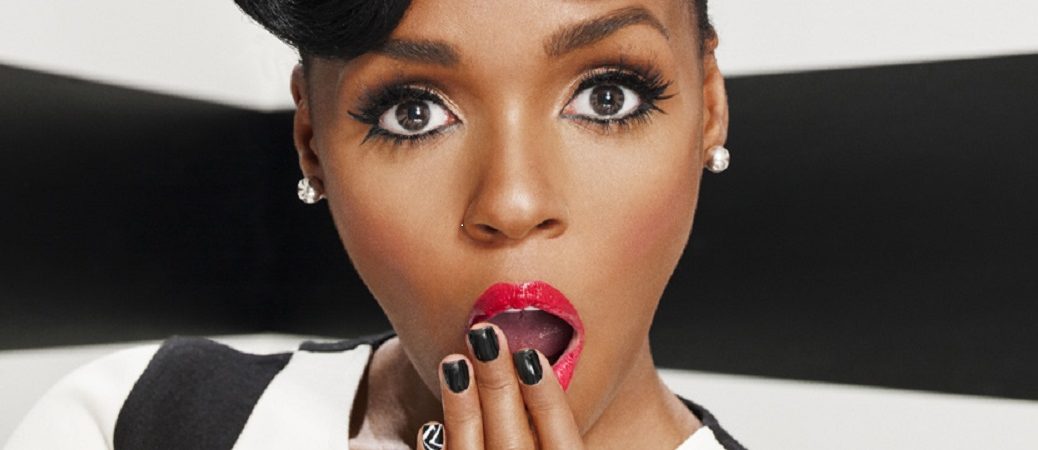Janelle Monáe: Why Everyone Needs Therapy

Singer, songwriter, actress, and activist Janelle Monáe has been outspoken recently about the importance of therapy for self-care. Here at KVC Hospitals, a network of children’s psychiatric hospitals and residential treatment centers, we couldn’t agree more! People of all ages should care for their mental health to the same extent, if not more so, as they do their physical health.
Whether you have a mental illness diagnosis or not, your mental health needs attention because your emotional state is not stagnant. It changes every day based on how you feel about everything from the simplest interactions to life-changing events. This is what makes us each unique and human—our vulnerability and ability to feel something about our experiences.
Why don’t we care about our mental health the same way we do our physical health?

Guy Winch
In psychologist Guy Winch’s TED Talk, “Why we all need to practice emotional first aid,” he gives an example of the difference in how we treat physical and mental health. His example: if someone is feeling depressed, they’re often told to shake it off and that it’s all in their head. However, if that person breaks their leg, no one tells them to just walk it off or that it’s all in their leg.
We talk to a doctor about our internal symptoms when we feel physically ill but often ignore the internal symptoms when we’re feeling emotionally unwell. Instead of seeking out someone who can help us work through pain, trauma or flat-out confusion, we push it down as far down as possible and tell ourselves it will go away. But emotions don’t just vanish.

Janelle Monáe performing during her Dirty Computer tour.
Janelle Monáe Encourages Self-Care through Therapy
Singer, songwriter, actress, and activist Janelle Monáe was born in Kansas City, Kansas and graduated from Schlagle High School. Since landing her big break in 2005, Monáe has achieved great success releasing several empowering R&B albums and starring in critically acclaimed films such as Moonlight, Hidden Figures and Welcome to Marwen.
Monáe exudes confidence and owns herself exactly as she is. She displays a level of self-assurance and poise that we all strive for.
How did she get there? Monáe has been candid in interviews, identifying therapy as the key to her emotional strength. She encourages people to find someone you can open up to who can help you talk through any situation. Monáe finds therapy so important that she started going as soon as she got her first paycheck.
Monáe also says that there isn’t one specific reason why she goes to therapy nor is there only one aspect of life in which it helps her—she finds it all-around beneficial. Therapy has helped her be less guarded, which she says has also been inspirational in her music.
“It helps with my songwriting because once I am talking to somebody and I’m getting it out and it’s not in my head, I’m able to just write it out.”
– Janelle Monáe
The Therapy Stigma
Why do so many people reject the idea of therapy and consider it taboo?
According to Monáe, in the black community, stigma about therapy is a result of spiritual, faith-based beliefs. According to the National Alliance on Mental Illness (NAMI), African Americans are 20% more likely to experience mental health problems than the general population, but only one-quarter seek mental health treatment, compared to 40% of white Americans.
“Being a black woman, that was not something that was pushed in my community. It was always, ‘Pray about it. God will take care of it.’ Which is true. I do believe in a higher power. I also believe that that higher power gives you people on earth to help walk you through some of your darkest times and help you cope. “ – Janelle Monáe
A common misconception that exists in all communities is that you only go to therapy if you have a mental illness or are depressed or suicidal. People often fear they will be considered weak or that people will think bad things happened to them as a child if they go therapy or ask for help. These assumptions are far from the truth though. Therapy isn’t only for people who are depressed or have experienced a traumatic event; it’s beneficial for everyone.

Astra Garner, KVC Hospitals
We recently sat down with Astra Garner, LPC, LCPC, RPT, Vice President of Clinical Advancement for KVC Hospitals, In her role, Garner oversees a team of therapists and other professionals at our children’s psychiatric hospitals and residential treatment programs for youth with severe mental and behavioral health needs. Garner helped explain what therapy is and how it can improve a person’s emotional wellbeing.
Q: What is therapy? Are there different types?
Garner: There are a few different ways to define therapy or counseling. The American Counseling Association describes it as “a collaborative effort between the counselor and the client. Professional counselors help identify goals and potential solutions to problems which cause emotional turmoil…” Even with this definition though, there are many different types of counseling and various scenarios in which you can receive counseling: individual, group, couples and family.
There are also several different theories that drive approaches to counseling and therapy, and even more types of therapists who specialize in working with different populations. I often tell people that if you go to a therapist but for some reason, you don’t “hit it off,” don’t stop counseling altogether. Find another therapist whose style better fits your needs. Not all therapists are the same.

Young boy in a play therapy session.
Take play therapy, for example. If your child needs to see a play therapist to adjust to a new baby in the home but you weren’t “wowed” by the first one, check out other play therapists in your area. While I don’t recommend seeing two therapists simultaneously for the same issue, you can end your work with one therapist and schedule an appointment with another. Also, to Janelle’s point about faith versus therapy, there are faith-based approaches to therapy such as Christian counseling. Psychology Today provides a list of the most common types of therapy with descriptions.
We’ve also produced a free guide. If you’re interested in exploring therapy for your child or teen, download it here: The 3 Types of Mental and Behavioral Health Treatment for Children and Teens.
Q: Why do people go to therapy? Do they need a referral from a primary physician?
Garner: People go to therapy for a number of reasons, such as to help process a career change, a family member’s terminal illness, personal trauma, or even simply a check-up. Many of us go to the doctor annually to check in with a professional about our physical health. Even if we feel fine, we still go. Some people take this approach with their mental health as well.
Before scheduling an appointment, check with your insurance provider. While most often a referral is not necessary for you to start counseling, it’s possible you do need a referral. If you’re uninsured, you still have options for receiving these services. You can look for a therapist who will provide services based on a sliding-fee scale or contact your local community mental health center.
Q: What are the benefits of therapy?
Garner: There are numerous benefits of therapy. You learn new skills that can be applied throughout many areas of your life, such as increased self-awareness, assertiveness and communication. Therapy can also help reduce the negative effects of stress.
By successfully working through stress in therapy, you’re essentially undoing those impacts on your mental and physical health. People receiving therapy often observe increased energy, improvement in sleep and appetite, improved ability to focus and other positive life enhancements. There are many studies proving a link between mental and physical health. They show how stress and trauma experienced as young as early childhood can having lasting impacts on your physical health. The American Insititute of Stress provides information about how stress affects your physical health and can lead to an array of issues from headaches and body aches to heart attacks, infections and possibly even cancer.
We’ve all heard the expression, “out of sight, out of mind,” but don’t let that be the case with your mental health. Talking to a professional doesn’t make you weak. It shows that you recognize your personal needs and care enough about yourself to keep your whole self healthy.
While KVC Hospitals, unfortunately, does not provide therapy to the general public at this time, we do offer behavioral health treatment in hospital and residential environments for youth ages 6-18. If you have a child experiencing a psychiatric crisis, contact us today.






